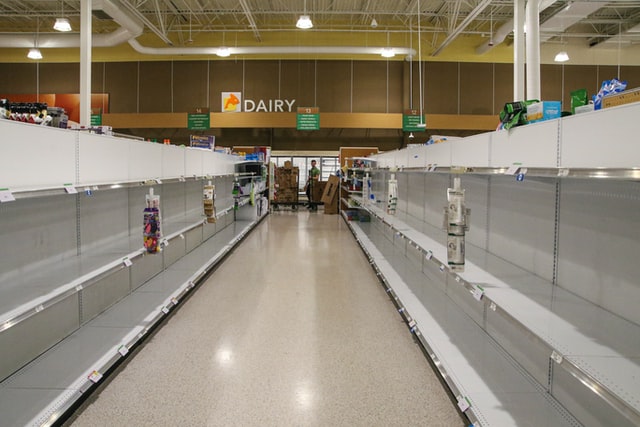As more states announce stay-at-home advisories to slow the spread of COVID-19, American storefronts have gone quiet: falling consumer spending and rising unemployment are evident in every empty shopping center and city block. However, a subset of “essential” businesses, such as grocery stores and delivery services, have kept their doors open and even seen increased demand. As these businesses work to deliver their services reliably and responsibly–and their employees face daunting health risks on the frontlines of the pandemic–the quality of these jobs has never been more important. For employers, providing strong benefits to attract new workers is paramount to continuing operations and to maintain the overall wellbeing and financial security of their employees during this turbulent time.
The second webinar in our COVID-19 Response series, How to Support Workers on the Frontlines During the Pandemic, addressed both the why and the how of supporting these essential workers. Timothy Flacke, Co-Founder and Executive Director of Commonwealth, and Alison Omens, Chief Strategy Officer at JUST Capital, joined in a conversation moderated by Commonwealth’s Catherine Wright to discuss strategies for providing high-quality support, as well as why helping workers is a smart business choice.
Three Key Takeaways
1. Companies who support their frontline workers are better equipped to meet the challenging demands of the pandemic.
Commonwealth’s finding that financial security is vital to improving employee performance and decreasing absenteeism holds especially true in light of the new burdens, financial and otherwise, that employees and their families face during COVID-19. Additionally, as JUST Capital recently shared, research indicates that businesses that considered the needs of all stakeholders, not just shareholders, better recovered from the last financial crisis in 2008.
2. Companies have ample options for programs they can implement now to support new and existing workers.
Paid sick leave, hazard pay, health savings accounts, and hardship funds are only a sample of the strategies available. For employees who haven’t been hit as hard by the current crisis, helping workers build emergency savings now could be critical to their ability to withstand future financial challenges; emergency savings are “the Swiss Army knife of solving financial challenges because it’s so flexible and can be used to solve so many issues,” as Timothy Flacke shares. To guide their decision, businesses should ask their workers directly what they need most and take into account the structure and existing employee benefits of their business.
3. These worker benefits will be essential to maintaining a healthy, financially stable workforce to continue service as the economy re-opens and to weather future waves of social distancing.
Providing meaningful employee support is not just a stop-gap solution for surviving this difficult time. Ongoing support for workers will help retain and sustain them through what could be a long period of uncertainty ahead.
This is a rare moment for employers: both public pressure to act and the business value of supporting workers are mounting in tandem. As Alison Omens said during the webinar, JUST Capital’s consumer research shows year after year that “the thing people care most about from a stakeholder perspective is how a company treats their workforce,” and with COVID-19, “never before has there been a reality where that’s so on display.” Employers have the opportunity to prove their commitment to all stakeholders through strong policies and benefits that increase their employees’ financial security and support their wellbeing. We are heartened by examples of companies engaged in this work already, and look forward to more employers developing creative solutions of their own.
Thank you to Alison Omens and JUST Capital for joining Commonwealth for this webinar. Commonwealth is continuing to monitor the coronavirus outbreak’s impact on financial security. To stay informed, check out our COVID-19 page for the latest news, insights, and resources; you can also subscribe to our newsletter to receive weekly updates and learn about our COVID-19 webinar series.
